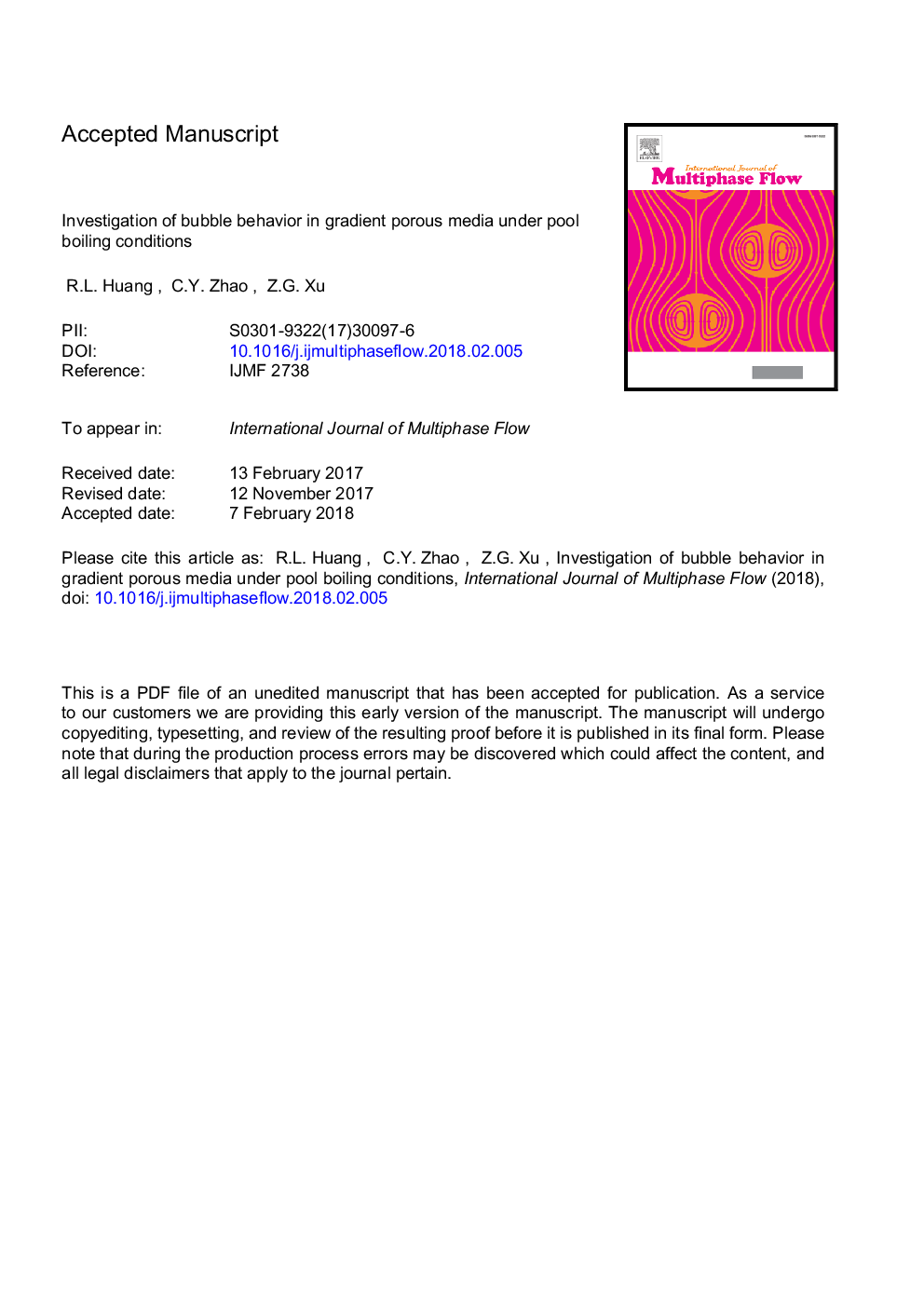| Article ID | Journal | Published Year | Pages | File Type |
|---|---|---|---|---|
| 7060118 | International Journal of Multiphase Flow | 2018 | 32 Pages |
Abstract
This paper investigates heat transfer performance and bubble behavior in gradient metal foam in saturated pure deionized water and n-heptanol solutions under pool boiling conditions. The gradient metal foam consists of a 40 PPI nickel foam layer with 4â¯mm thickness and a 10 PPI copper foam layer with 4â¯mm thickness; the foam porosity is 0.98. The experimental results show that n-heptanol increases the wettability of the copper surface and adversely affects the boiling heat transfer. At low heat flux, small departure bubbles attach onto the metal skeleton and then decrease in size. As heat flux increases, two common phenomena occur in the gradient foam: bubbles escape from the metal skeletons without cracking and bubbles separate into two smaller bubbles. When heat flux increases to 1â¯Ãâ¯105 W mâ2, two neighboring bubbles move upwards and are then sucked into the metal foam due to coalescence.
Related Topics
Physical Sciences and Engineering
Chemical Engineering
Fluid Flow and Transfer Processes
Authors
R.L. Huang, C.Y. Zhao, Z.G. Xu,
